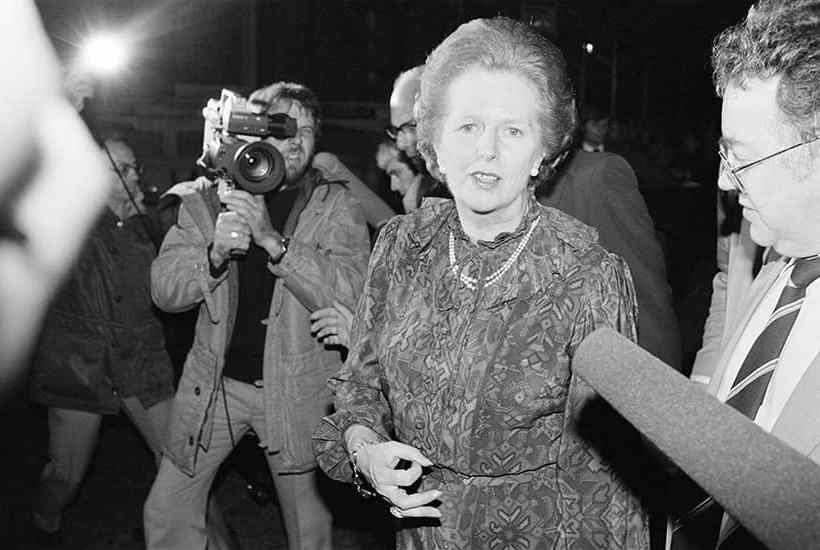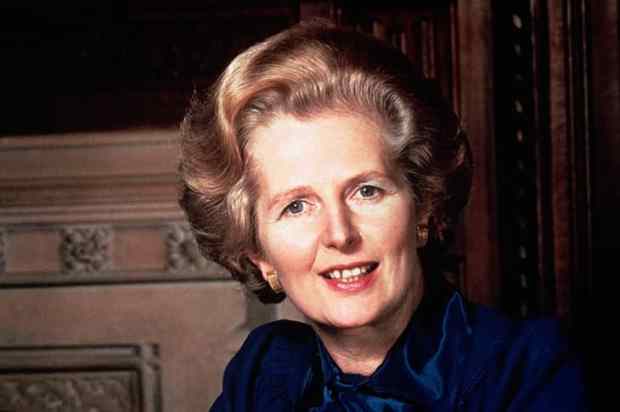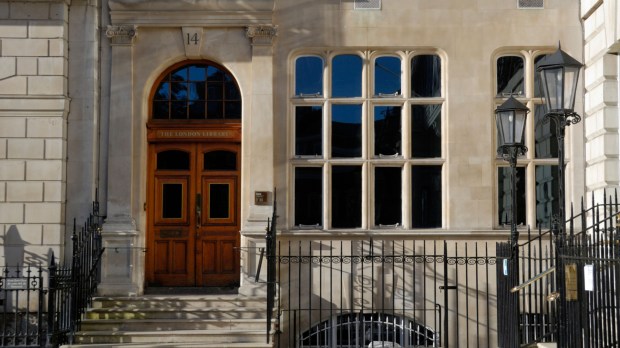Argentina invaded the Falkland Islands 40 years ago. I had joined the Daily Telegraph as a reporter in 1979 and was by then a leader writer. The Falklands was the first really seismic story I had encountered. What made it so exciting was that it was both genuinely absurd and genuinely important. The absurdity lay in Argentina’s vainglory. It violently claimed a right to the islands which not one single Falklands resident accepted. Its caudillo, General Galtieri, was from the comic-opera school of Latin American dictators, covered with gold braid and frequently drunk. In his invasion broadcast, he invoked the Virgin Mary. But Our Lady wisely ducked the contest, leaving the Iron Lady to sort it out. The importance lay in the prodigious feat of British arms projected over 8,000 miles, the triumph of Margaret Thatcher and the consequent effect on the Cold War.
I realise it is inglorious to fight a war in Fleet Street, but I must also admit that it was great fun. Passions ran high. You had to be very educated or very left-wing, or both, not to feel that Argentine aggression must be punished and the islands recaptured. Led by members of the Utley family, I assisted the composition of a patriotic song which we sang in the King and Keys, the unpleasant pub next door, to the tune of ‘The Red Flag’. One stanza, composed by my wife, Caroline, went thus: ‘The Falklands cliffs are lined with sheep,/ Who wildly contemplate the deep,/ And meditate an icy plunge,/ Should Britain now throw up the sponge./ Now Britons all, be strong and bold,/ Restore these lambs to native fold,/ For ’neath their dirty fleeces hide/ Hearts that swell with loyal pride.’ The sheep were mostly saved, except for a few victims of landmines. I am pleased to say that there are now about 490,000 of them on the islands, about 25 per cent more – and 80 per cent more islanders – than when Galtieri threatened both.
The paper’s editor then was W.F. Deedes, who was 68 years old (but was to go on working for us for another quarter of a century). It gave us particular joy that dear Bill had been the model for William Boot, the hero of Scoop, Evelyn Waugh’s unsurpassed novel about journalism. In it, young Boot, accidentally promoted from writing a nature column called ‘Lush Places’, becomes a reporter in the (real) Abyssinian war of 1936. The real Bill had gone with Waugh (Daily Mail) to report that conflict for the Morning Post (which was shortly afterwards subsumed into the Daily Telegraph). He had also served as an army officer throughout the second world war, winning the Military Cross. On the Falklands question, there was a sharp generational divide within the paper. All the most senior executives and the proprietor, Lord Hartwell, were in their late sixties or older. Most were war veterans. They were profoundly pessimistic about a Falklands recapture, mainly for the good reason that they knew how horribly things can go wrong, partly for the less good reason that the history of post-war Britain had made them accept decline. They foresaw a second Suez. We young fellows – Stephen Glover (nowadays at the Mail), Martin Ivens (later editor of the Sunday Times), Matthew Symonds (father of the present wife of the Prime Minister) and I – felt quite differently. We thought the cause was just and were airily confident of victory. At the daily leader conferences, Bill would shake his head about the prospects and pass on coded grumbles from veteran ministers, such as Willie Whitelaw MC, Lord Carrington MC, foreign secretary until he resigned over the invasion, and Francis Pym MC, who succeeded Carrington. The weird thing was, we youngsters turned out – through no fault of our own – to be right.
I often wonder what would have happened in the Falklands if Margaret Thatcher had been a man. Being herself of that wartime generation, she would probably have fought, and might therefore have picked up the reasonable doubts that infected her colleagues. As a woman, she felt differently. Not that she was incautious or uninterested in the facts on the ground – no politician ever worked harder at reconnaissance. But her motivations were different. She looked at war not professionally, but morally. This made her unforgiving of aggressors and maternally furious at enemies who killed ‘our boys’. She could not shrug off the affront offered to Britain by Argentina. She also made a strong and convenient identification between Britain’s honour and her own political success. If her government had lost the Falklands, that would have been the political end of her, whereas a male prime minister might conceivably have got away with it. As she often said: ‘There’s no second chance for a woman.’ I recently heard from Cynthia Crawford (‘Crawfie’), Mrs Thatcher’s constant confidante for so many years, that during the Falklands War she was so anxious that she scarcely went to bed, generally preferring to sleep – if at all – in a chair, dressed in her ever-neat clothes.
Crawfie told me this for a documentary I have just made. About 40 years late, the BBC finally noticed that the relationship between Mrs Thatcher and Ronald Reagan was important and kindly asked me to present a two-part television film about it. The first part appears on BBC2 at 9 p.m. this Sunday. I am grateful that the filmmakers had no clever ‘take’, but simply let me tell the story, mostly unscripted. If it has a thesis, it is that there are very rare occasions in international affairs when the leaders of two countries are on the same wavelength and have long enough together in office to make a personal difference. It has never happened before or since Reagan that a two-term American President had the same British PM from the day of his inauguration to the day of his departure. This confluence and their friendship contributed greatly to the fall of Soviet communism. No equivalent exists in the face of Vladimir Putin.
Got something to add? Join the discussion and comment below.
Get 10 issues for just $10
Subscribe to The Spectator Australia today for the next 10 magazine issues, plus full online access, for just $10.
You might disagree with half of it, but you’ll enjoy reading all of it. Try your first month for free, then just $2 a week for the remainder of your first year.















Comments
Don't miss out
Join the conversation with other Spectator Australia readers. Subscribe to leave a comment.
SUBSCRIBEAlready a subscriber? Log in